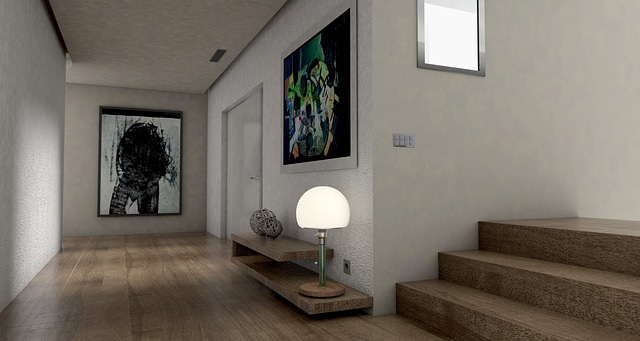Balancing privacy and social life is crucial for a positive college experience. Students should understand their rights to personal space, use room dividers or curtains for dedicated study areas, and engage in open communication with roommates about expectations. Technology aids in creating comfortable living spaces, while regular check-ins with RAs help mediate conflicts. Setting boundaries, discussing noise levels, and respecting each other's personal space cultivates a harmonious environment, enabling students to enjoy both academic pursuits and social connections.
“Navigating college housing offers an exciting blend of new experiences and challenges for students. Balancing privacy and social life is a crucial aspect of comfortable living spaces on campus. This student guide delves into your privacy rights, strategies for creating personal sanctuary in shared spaces, and maintaining boundaries amidst social pressures. Learn how to utilize technology thoughtfully, communicate openly with roommates and RAs, and achieve harmony between academic focus and campus engagement.”
- Understanding Your Privacy Rights on Campus
- Creating Personal Space in Shared Housing
- Navigating Social Pressures and Maintaining Boundaries
- Utilizing Technology for Enhanced Privacy
- Communicating Openly with Roommates and RA's
- Tips for Achieving a Healthy Balance Between Social Life and Privacy
Understanding Your Privacy Rights on Campus

As a student, navigating the balance between enjoying your college experience and maintaining your privacy can be challenging, especially when it comes to living arrangements. Understanding your privacy rights on campus is an essential aspect of independent living. College housing offers unique opportunities for social interaction, but it’s crucial to recognize and assert your boundaries for a comfortable living space.
Students should familiarize themselves with the policies regarding privacy in dormitories or residential halls. This includes knowing who has access to your room and personal spaces, as well as understanding the procedures for granting or restricting visitor privileges. Balancing your social life and privacy is an art; setting clear expectations with roommates and adhering to mutual respect will foster a harmonious environment, allowing you to fully embrace both academic pursuits and student social life.
Creating Personal Space in Shared Housing

Creating a sense of personal space in shared college housing is an art that every student must master to achieve a comfortable living environment. While socializing and building friendships are integral parts of the college experience, finding moments of solitude is equally important for mental well-being. Balancing social life and privacy can be challenging, but with some strategic thinking, students can transform their spaces into havens of tranquility amidst the hustle and bustle of campus life.
One effective way to establish privacy in shared accommodation is by utilizing room dividers or curtains. These simple tools allow students to create designated areas for studying, relaxing, or even just having quiet time. By claiming specific sections of the common living area as their own, students can maintain a sense of personal space while still enjoying the benefits of community living. Additionally, developing a communication system with roommates or suitemates is vital. Open and honest conversations about privacy expectations, study hours, and shared responsibilities create an environment where everyone feels respected and understood, fostering a harmonious living experience.
Navigating Social Pressures and Maintaining Boundaries

Navigating Social Pressures and Maintaining Boundaries in Balancing Privacy College
As a college student, your social life is an essential part of the university experience. However, balancing privacy and social interactions can be challenging, especially when sharing living spaces with peers. Comfortable living spaces should ideally provide both sanctuary from bustling student life and opportunities to connect with roommates and friends. To maintain healthy boundaries, students must communicate openly with their housemates about personal space needs, set clear limits, and establish mutual respect for one another’s privacy.
Implementing effective student living tips involves finding a balance between engaging in social activities and preserving personal time. This might mean establishing specific areas within the residence dedicated to quiet study or individual relaxation. By creating and respecting these boundaries, students can foster a positive living environment that supports both their academic pursuits and social lives, ultimately enhancing their overall college experience.
Utilizing Technology for Enhanced Privacy

In today’s digital era, technology offers both benefits and challenges when it comes to balancing privacy in college housing. Students can utilize various tools and apps designed to enhance their personal space and social life. For instance, smart locks enable remote access control, ensuring only authorized individuals enter your living space. Additionally, noise-canceling headphones or white noise machines can create a peaceful atmosphere during study sessions or when you need some quiet time in shared common areas.
Privacy doesn’t mean isolation; it’s about creating comfortable living spaces that cater to both personal and social needs. Students should consider using privacy screens for desks or setting boundaries within shared rooms. Balancing social life and personal space is crucial for a healthy college experience, and technology can be an effective tool to achieve this. By embracing innovative solutions, students can enjoy the benefits of campus life while maintaining their desired level of privacy.
Communicating Openly with Roommates and RA's

Open communication is key to fostering a healthy and respectful living environment in college housing. As a student, it’s essential to find a balance between your need for privacy and engaging in social interactions with roommates and Resident Assistants (RAs). Start by setting clear boundaries from day one, discussing expectations about noise levels, personal space, and shared areas.
Remember that your RA is there to support you and facilitate community building. They can help mediate conflicts and ensure everyone feels comfortable. Regularly check in with them for advice on managing social dynamics and maintaining a peaceful living space while enjoying the benefits of student social life. These conversations will contribute to creating a comfortable living environment tailored to your needs, allowing you to focus on your studies and enjoy the college experience.
Tips for Achieving a Healthy Balance Between Social Life and Privacy

Finding a balance between enjoying your social life and maintaining privacy is essential for a comfortable college living experience. As a student, it’s natural to want to immerse yourself in campus activities and build strong connections with peers. However, establishing boundaries and prioritizing personal space is crucial for your well-being and academic success. One effective strategy is to designate specific areas for both social interaction and solitude within your residence. For instance, create a cozy reading nook or study area where you can retreat for focused work, away from the buzz of common spaces.
Additionally, communicate openly with your roommates and neighbors about your need for privacy. Simple conversations can establish ground rules, such as respecting each other’s time alone or setting specific hours for quiet in shared spaces. Remember, balancing social life and privacy is a two-way street—just as you value your own personal space, show consideration for your roommate’s desire to socialize. This mutual understanding will contribute to a harmonious living environment, fostering both academic productivity and meaningful friendships.






